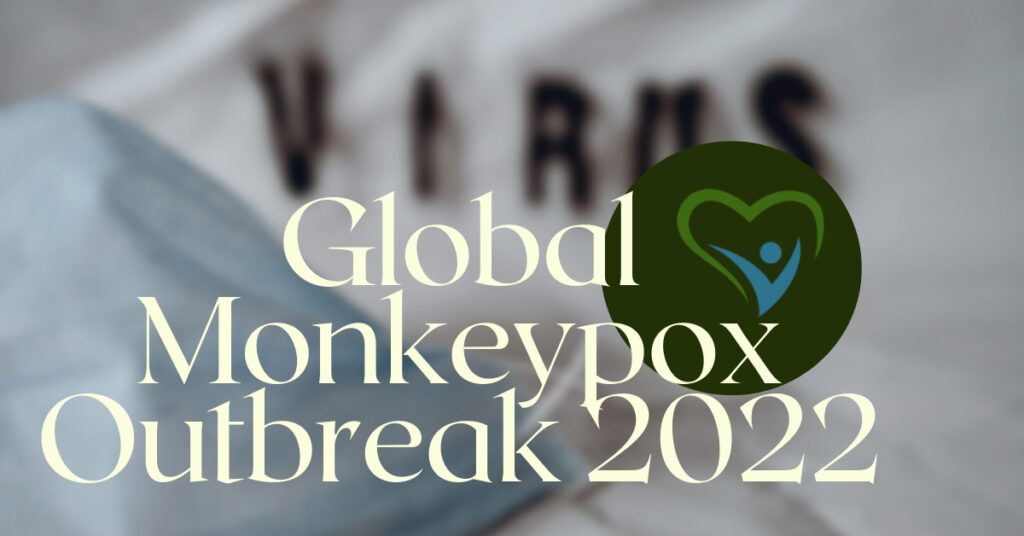Monkeypox virus causes monkeypox, an uncommon condition that resembles smallpox. Although it has been spotted in other parts of the world, it is primarily prevalent in parts of Africa. It results in symptoms that resemble the flu, including fever, chills, and a rash that might take weeks to go away. Monkeypox has no known cure, however it typically goes away on its own.
Monkeypox: What is it
Monkeypox was discovered in 1958 when two outbreaks of a pox-like disease occurred in groups of monkeys being used for research. Although skin-to-skin contact with an infected person can occasionally spread the disease, rodent interaction with infected humans accounts for the majority of its transmission. There are two known types of monkeypox virus — one that originated in Central Africa and one that originated in West Africa. This virus belongs to Orthopoxvirus. The less dangerous West African clade is the origin of the current global pandemic (2022).
Viruses that were formerly largely confined to certain regions can more easily spread worldwide as international travel becomes more widespread. Monkeypox was discovered in a resident of the United States who had come to the country from Nigeria in the summer of 2021. Then, in 2022, infections spread to places like Europe, the Americas, and Australia that weren’t in Africa.
Who is Susceptible to Monkeypox?
Monkeypox can affect anyone. The majority of cases in Africa involve children under the age of 15. The disease appears to be more prevalent in men who have sex with men outside of Africa, although there are many cases in people who don’t fit this category.
Signs and Symptoms of monkeypox
It could take days or even weeks after exposure before you experience symptoms. Flu-like symptoms are among the early indicators of monkeypox.
- Fever.
- Chills.
- Headache.
- Muscle aches.
- Fatigue.
- Swollen lymph nodes.
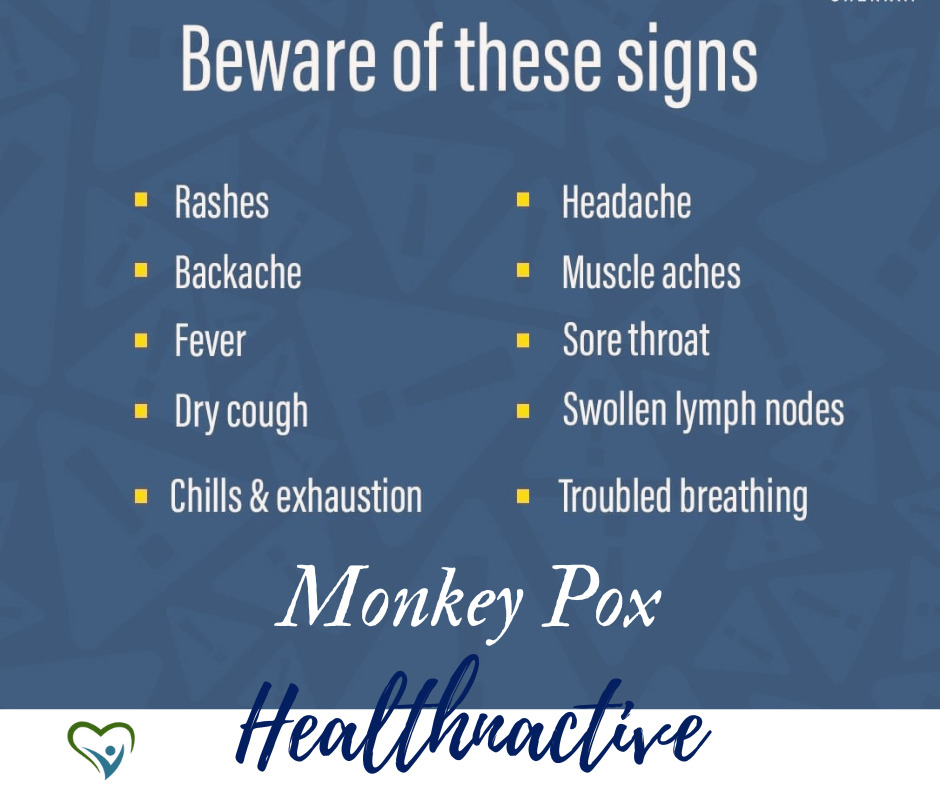
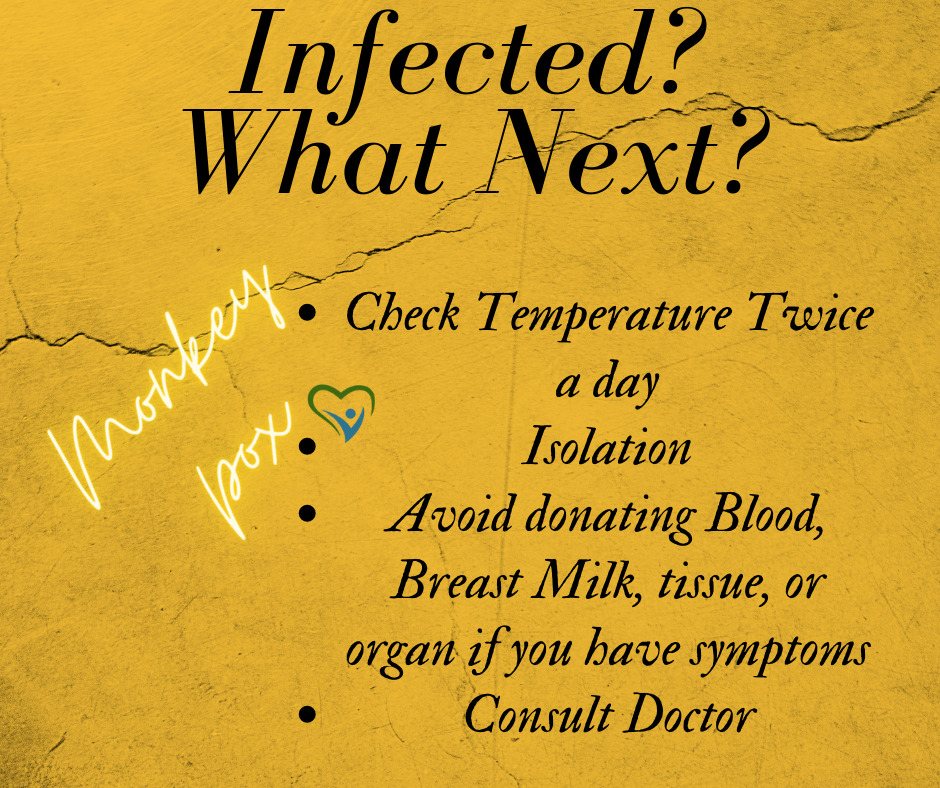
A rash frequently appears a few days later. The rash initially appears as painful, flat, red pimples. These lumps develop into blisters that ooze pus. The blisters eventually dry out and peel off the entire process can take two to four weeks. Additionally, ulcers in the mouth, vagina, or anus are possible.
Not every monkeypox patient experiences every symptom. In fact, many cases in the current (2022) outbreak aren’t exhibiting the typical set of symptoms. Only a few lesions, no enlarged lymph nodes, a lower fever, and fewer additional symptoms of sickness are present in this unusual presentation.
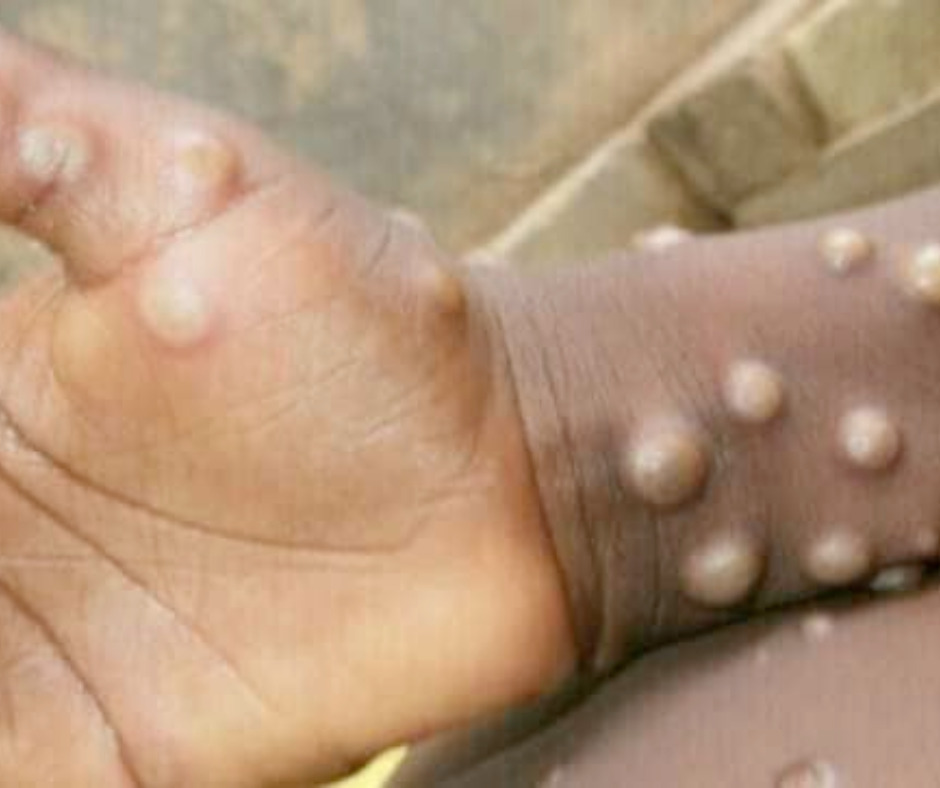
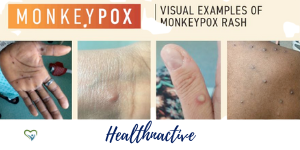
Diagnosis & Tests
To diagnose monkeypox, a tissue sample from an open sore is required (lesion). After that, a lab performs polymerase chain reaction (PCR) testing on it (genetic fingerprinting). Additionally, a blood sample may be required to check for the monkeypox virus or antibodies your immune system produces against it.
Management & Treatment
Typically, monkeypox is a self-limiting illness with symptoms that last between two and four weeks. Monkeypox typically resolves on its own without medical intervention. After diagnosis, manage symptoms, avoid dehydration, and, if necessary, antibiotics to treat any developing secondary bacterial infections.
Monkeypox does not currently have an approved antiviral therapy. Although they haven’t been researched as a monkeypox treatment, antiviral medications may be helpful. There are a number of investigational antivirals with activity against monkeypox, but they can only be obtained through a research study.
There are over-the-counter medicines that can help you feel better if you experience symptoms of monkey pox.
Self-Care
The dry, itchy sensation that occurs with skin rashes can be relieved by soaking in a warm bath with colloidal oatmeal.
Keep away from others until all of your lesions have healed.
To prevent transmission to other people and the environment, use gauze or bandages.
When you’re sick, it’s important to remain at home, cover your face around other people, and drink lots of water.
Prevention
Monkeypox can be prevented using a smallpox vaccination, but its usage is now restricted to clinical studies. Limiting person-to-person transmission and reducing human contact with diseased animals are essential to prevention. The best strategy to stop the virus that causes monkeypox from spreading is to:
- Keep distance from diseased animals.
- Cook all foods containing meat or other animal products completely.
- Wash your hands with soap and water on a regular basis.
- Keep your distance from anyone who might be carrying the virus.
- Utilize safe sexual practises, such as the use of dental dams and condoms.
- Frequently touched surfaces should be cleaned and disinfected.
- When providing medical care to those who have the virus, Use personal protective equipment (PPE).
- Follow Local Travel Guidelines
When it is become Emergency
- Trouble breathing.
- New or worsening chest pain.
- Stiff neck.
- Difficulty speaking or moving.
- Loss of consciousness.
- Seizures.
References: American Society for Microbiology, https://www.cdc.gov/poxvirus/monkeypox/symptoms.html, https://www.who.int/news-room/fact-sheets/detail/monkeypox

